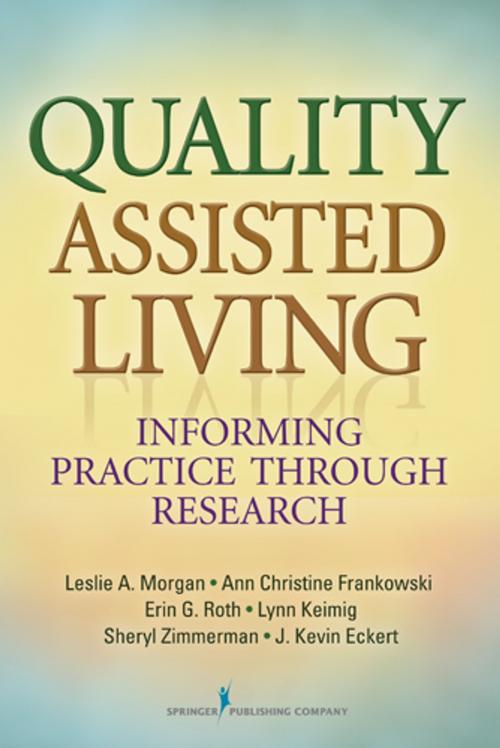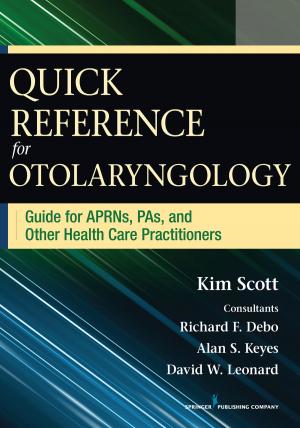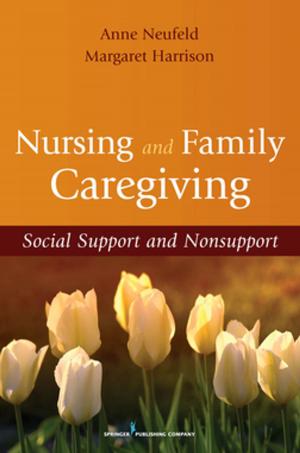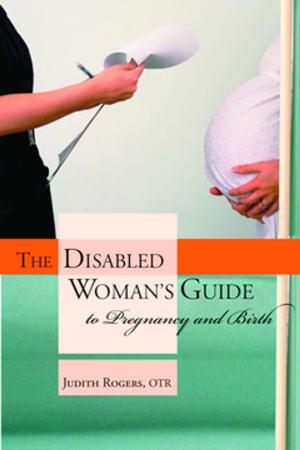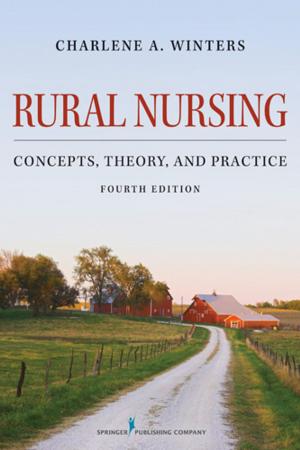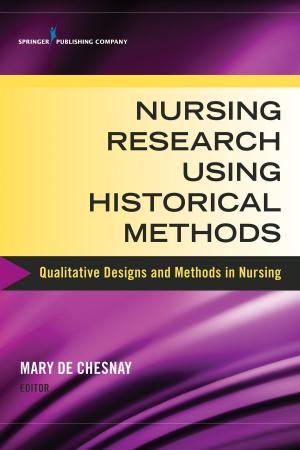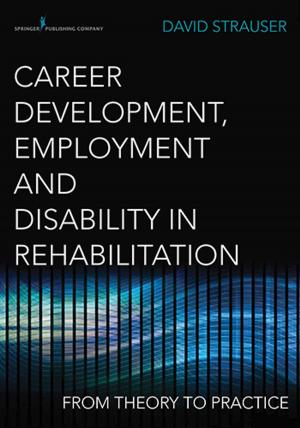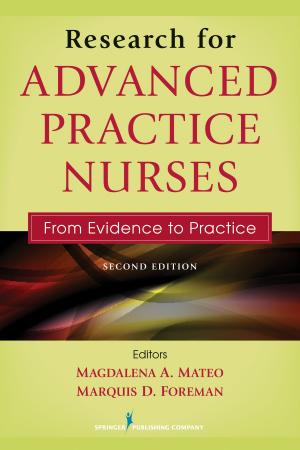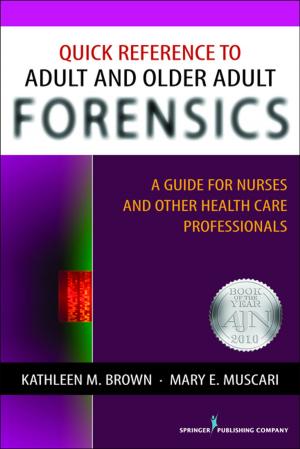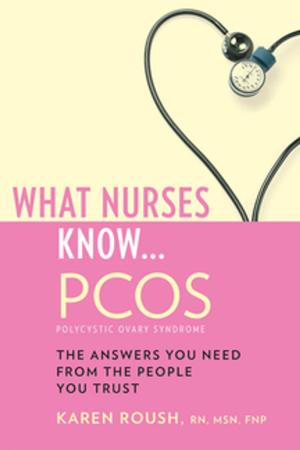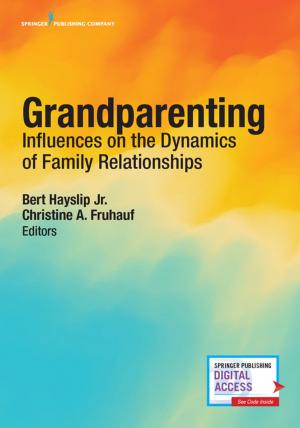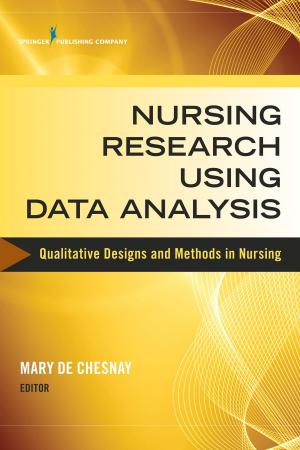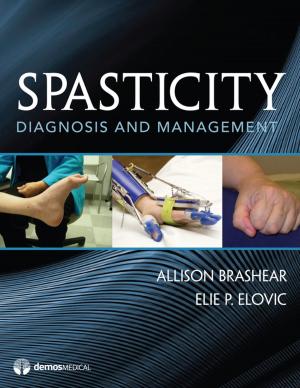Quality Assisted Living
Informing Practice through Research
Nonfiction, Health & Well Being, Medical, Nursing, Nursing Home Care, Social & Cultural Studies, Social Science, Gerontology, Family & Relationships, Aging, Eldercare| Author: | Leslie A. Morgan, PhD, Dr. Danny Wedding, PhD, MPH, Michael D. Franzen, Dr. Glen E. Getz, PhD, ABN, J. Kevin Eckert, PhD, Sheryl Zimmerman, PhD, Ann Christine Frankowski, PhD, Erin G. Roth, MA, Leanne J. Clark, MGS, PhD, Lynn Keimig, MHA, Robert L. Rubinstein, PhD | ISBN: | 9780826130358 |
| Publisher: | Springer Publishing Company | Publication: | June 28, 2011 |
| Imprint: | Springer Publishing Company | Language: | English |
| Author: | Leslie A. Morgan, PhD, Dr. Danny Wedding, PhD, MPH, Michael D. Franzen, Dr. Glen E. Getz, PhD, ABN, J. Kevin Eckert, PhD, Sheryl Zimmerman, PhD, Ann Christine Frankowski, PhD, Erin G. Roth, MA, Leanne J. Clark, MGS, PhD, Lynn Keimig, MHA, Robert L. Rubinstein, PhD |
| ISBN: | 9780826130358 |
| Publisher: | Springer Publishing Company |
| Publication: | June 28, 2011 |
| Imprint: | Springer Publishing Company |
| Language: | English |
Named a 2013 Doody's Core Title!
Doody's Medical Reviews Score: 92, 4 Stars!
"[This book] is well written and achieves its aim of exploring the meaning of quality from a range of perspectives. It has a welcome focus on the views of residents, and the authors are to be congratulated for the efforts they have made to capture these views...This book will be of interest to a broad audience in relation to AL and other residential care settings, including managers, commissioners, care staff, researchers, students and also the wider public."--Ageing & Society
Considering that seventy-four million baby boomers will be the next generation of assisted living residents, there is a great need to create, sustain, and evaluate quality in these settings. Whereas most books focus on quality of care, this is the only volume to explicitly delve into the lives of those who inhabit assisted living facilities, seeking to understand and evaluate their perceived ideas of what constitutes quality of life.
Quality Assisted Living provides results from a National Institute on Aging-funded study that gathered information from not only residents, but also staff and family members, who are considered experts who can better help us to understand how quality should be conceived and evaluated. The volume addresses the complexities underlying seemingly clear cut issues and provides concrete suggestions for reframing problems in order to find better solutions. Plentiful stories and quotations are used to identity those elements of assisted living that are most conducive to a satisfying quality of life, and address how this research has led to a consideration of quality as a process rather than as a single condition.
Key Features
- Employs the views and voices of research participants
- Provides down-to-earth and directly applicable results
- Written in a language that is accessible to a wide readership
- Describes complex social situation within the wall of AL
- Examines issues arising from collective living such as regulations, financing and diverse resident needs
- Uses real life stories to illustrate key points of the narrative
Named a 2013 Doody's Core Title!
Doody's Medical Reviews Score: 92, 4 Stars!
"[This book] is well written and achieves its aim of exploring the meaning of quality from a range of perspectives. It has a welcome focus on the views of residents, and the authors are to be congratulated for the efforts they have made to capture these views...This book will be of interest to a broad audience in relation to AL and other residential care settings, including managers, commissioners, care staff, researchers, students and also the wider public."--Ageing & Society
Considering that seventy-four million baby boomers will be the next generation of assisted living residents, there is a great need to create, sustain, and evaluate quality in these settings. Whereas most books focus on quality of care, this is the only volume to explicitly delve into the lives of those who inhabit assisted living facilities, seeking to understand and evaluate their perceived ideas of what constitutes quality of life.
Quality Assisted Living provides results from a National Institute on Aging-funded study that gathered information from not only residents, but also staff and family members, who are considered experts who can better help us to understand how quality should be conceived and evaluated. The volume addresses the complexities underlying seemingly clear cut issues and provides concrete suggestions for reframing problems in order to find better solutions. Plentiful stories and quotations are used to identity those elements of assisted living that are most conducive to a satisfying quality of life, and address how this research has led to a consideration of quality as a process rather than as a single condition.
Key Features
- Employs the views and voices of research participants
- Provides down-to-earth and directly applicable results
- Written in a language that is accessible to a wide readership
- Describes complex social situation within the wall of AL
- Examines issues arising from collective living such as regulations, financing and diverse resident needs
- Uses real life stories to illustrate key points of the narrative
